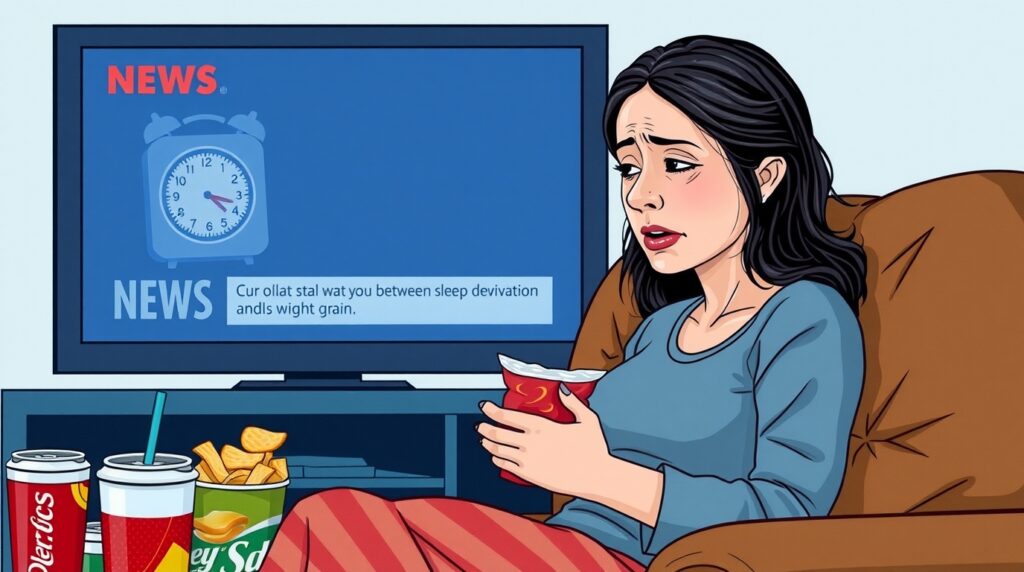
Yes — lack of sleep can significantly contribute to weight gain. While it might seem unrelated, sleep plays a major role in regulating hormones, metabolism, and appetite. When you don’t get enough rest, your body’s natural balance is disrupted, leading to increased hunger, poor food choices, and slower fat metabolism.
1. Hormonal Imbalance
Sleep affects two key hormones that control hunger:
- Ghrelin: The “hunger hormone,” which increases when you don’t sleep enough.
- Leptin: The “fullness hormone,” which decreases with lack of sleep.
This imbalance makes you feel hungrier even when your body doesn’t need extra food, often leading to overeating.

2. Craving for Unhealthy Foods
When you’re tired, your brain craves quick energy sources—usually sugary, high-carb, or fatty foods. You’re more likely to choose junk food over healthier options, which can increase calorie intake and fat storage.
3. Slower Metabolism
Sleep deprivation affects your body’s ability to process carbohydrates and regulate insulin. This can lead to higher blood sugar levels and fat accumulation, especially around the belly area.
4. Increased Stress Hormones
Lack of sleep raises cortisol (the stress hormone), which signals the body to store more fat. Elevated cortisol levels also increase appetite and make it harder to lose weight.
5. Less Energy for Physical Activity
When you’re exhausted, you’re less likely to exercise or move actively during the day. Over time, this leads to fewer calories burned and potential weight gain.

6. Disrupted Circadian Rhythm
Irregular sleep patterns can confuse your body’s internal clock, affecting digestion, metabolism, and hormone release—all of which play a role in maintaining a healthy weight.
How to Improve Sleep for Weight Management
- Aim for 7–9 hours of quality sleep each night.
- Maintain a consistent bedtime and wake-up time.
- Avoid caffeine, heavy meals, and screen time before bed.
- Create a calm, dark, and cool sleeping environment.
- Try relaxation techniques like deep breathing or meditation.
Final Thoughts
Lack of sleep does much more than make you feel tired — it directly impacts how your body stores fat and regulates hunger. By prioritizing good sleep, you can boost metabolism, control cravings, and make your weight loss efforts more effective.